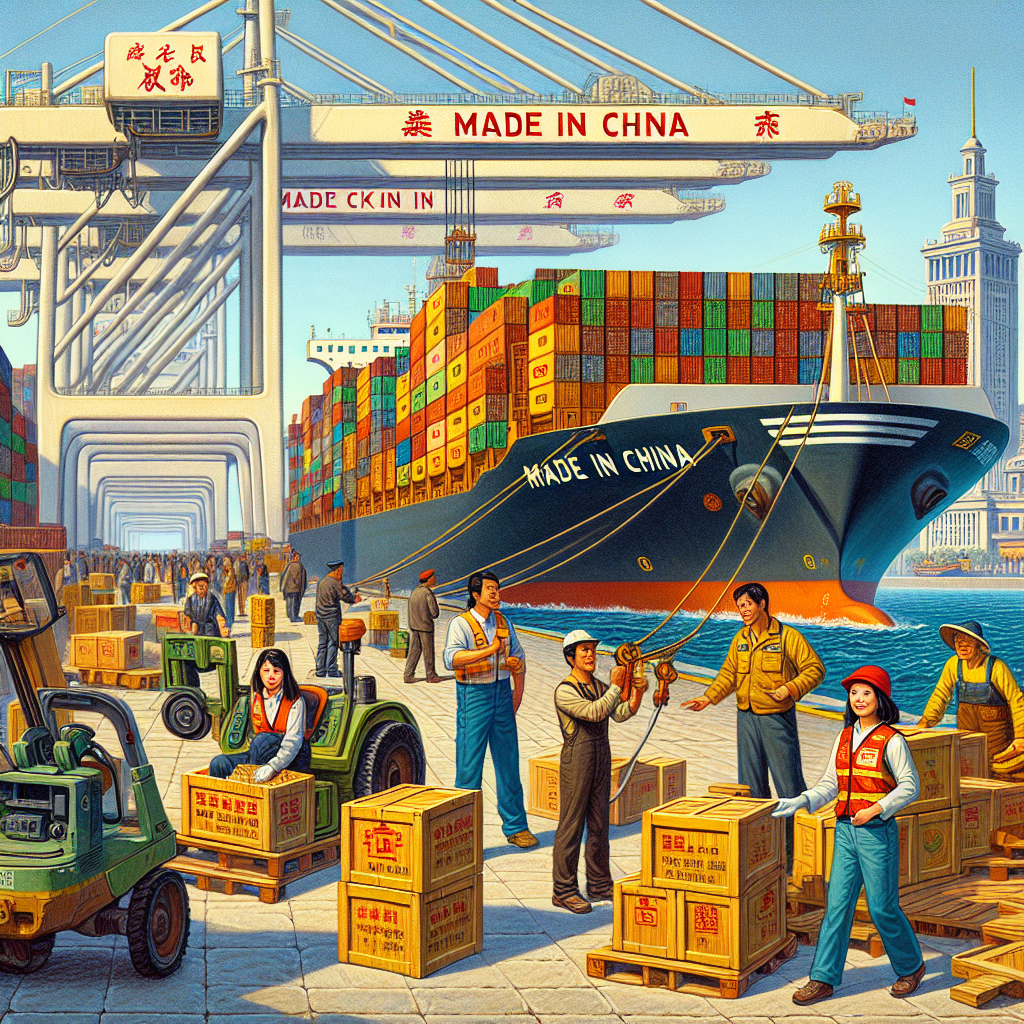China's Exports Surge Despite Mounting Tariffs
China's exports grew 8.7% in August, their fastest pace since March 2023, as manufacturers rushed orders before expected tariffs. Imports lagged at just 0.5%. Amid looming trade barriers and domestic challenges, exports remain crucial for China's economy, driving urgency for increased fiscal stimulus.

China's exports saw an impressive 8.7% year-on-year growth in August, the fastest increase since March 2023. This surge indicates a rush by manufacturers to fulfill orders ahead of anticipated tariffs from an increasing number of trade partners.
Customs data released on Tuesday revealed that the value of outbound shipments from the world's second-largest economy surpassed a Reuters poll forecast of 6.5% and a gain of 7% in July. On the flip side, imports saw a minimal 0.5% rise, falling short of expectations and down from 7.2% growth a month earlier.
While exports have proven to be a bright spot for China's $19 trillion economy, weak domestic demand, a prolonged property slump, and a struggling labor market have severely affected consumer confidence. Economists caution that over-reliance on exports could jeopardize Beijing's growth targets, increasing pressure on policymakers for additional stimulus measures.
Mounting trade barriers are also becoming a significant concern. As China's manufacturing sector experiences its sixth consecutive month of contraction, factory gate prices hit a 14-month low, indicating that firms are lowering prices to attract buyers.
Efforts to negotiate tariff reductions for Chinese electric vehicles (EVs) with the European Union have yielded little progress, and Canada recently imposed a 100% tariff on Chinese EVs alongside a 25% tariff on Chinese steel and aluminum. Southeast Asian countries, including India, Indonesia, and Malaysia, are also contemplating new tariffs and anti-dumping investigations on Chinese imports.
Despite the anticipation of fiscal stimulus later this year, analysts remain cautious about the outlook. Nomura's chief China economist, Ting Lu, warned of significant challenges ahead, citing a higher comparison base, rising trade restrictions, and a decline in prices as critical hurdles moving into the fourth quarter.
(With inputs from agencies.)
ALSO READ
Boost to Jammu and Kashmir's Economy: New Manufacturing Unit Launches in Kathua
Mixed Signals: India's Manufacturing Faces Boosts and Challenges as FY26 Begins
Foxconn Explores Major Electronics Manufacturing in Uttar Pradesh
BC Jindal Group Ventures into Renewable Energy Manufacturing with Rs 15,000 Crore Investment
Hisar's Industrial Manufacturing Cluster Set to Transform Haryana's Economy










